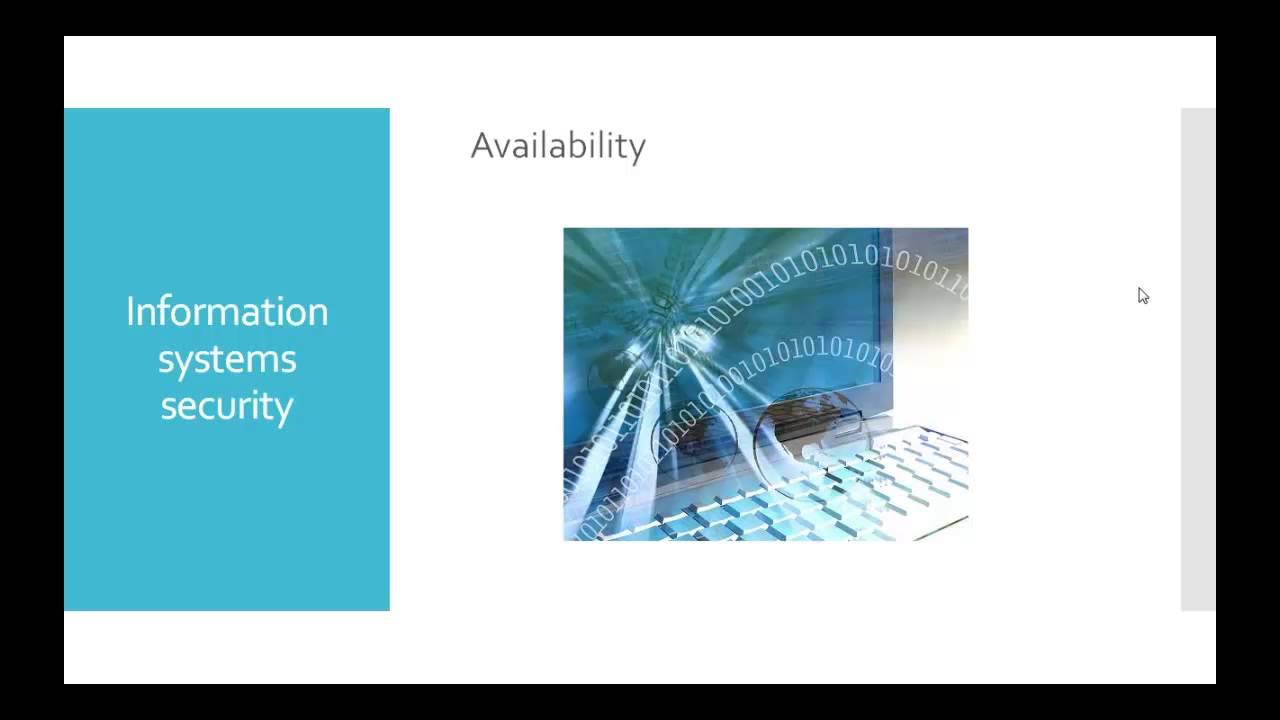CompTIA Security+ Full Course: Cybersecurity Overview and Roles
Summary
TLDRThe video discusses the key aspects of IT security, focusing on securing information or data. It covers the CIA Triad: Confidentiality, Integrity, and Availability, explaining how each pillar plays a crucial role in protecting information. The speaker explores real-life examples like VPN usage and credit card transactions to illustrate how data is secured. Additionally, it highlights the importance of non-repudiation, risk assessment, and the role of professionals in maintaining security in IT environments. The discussion also touches on job roles such as CISOs and DevSecOps in modern security frameworks.
Takeaways
- 🔐 Security in IT focuses on securing information and data, which is the essence of all IT security efforts.
- 🛡️ VPNs and secure payment methods protect sensitive data during transmission, emphasizing that all security efforts involve data protection.
- 🔑 Confidentiality ensures that only authorized individuals can access sensitive information, typically enforced through encryption and access controls.
- 🔍 Integrity guarantees that information remains accurate and unaltered, providing trust in the data even if it's publicly visible, such as product prices.
- ⚙️ Availability ensures that the systems and data are accessible when needed, as without it, data becomes useless even if secured.
- 🔄 The CIA Triad (Confidentiality, Integrity, Availability) represents the three essential pillars of IT security, and finding a balance between them is crucial.
- ❌ Non-repudiation ensures that individuals cannot deny their actions, holding them accountable for actions like sending data or accessing systems.
- 📊 Security management follows five functions: Identification, Protection, Detection, Response, and Recovery, covering the entire lifecycle of security incidents.
- 👨💼 Roles like Chief Information Security Officer (CISO) lead security efforts, with teams responsible for device configuration, policy implementation, and incident response.
- 🤝 DevSecOps integrates security into every phase of software development and deployment, emphasizing the need for security to be embedded in all stages of the IT pipeline.
Q & A
What does 'security' refer to in the context of IT?
-'Security' in the context of IT refers to the protection of data and information from unauthorized access, tampering, or loss. The goal is to ensure that data remains confidential, intact, and available when needed.
How does a VPN contribute to data security?
-A VPN (Virtual Private Network) provides a secure, encrypted connection between a user and a network. This ensures that the data being transferred is protected from eavesdropping or interception, thereby contributing to the confidentiality and security of the information.
What is the significance of confidentiality in IT security?
-Confidentiality ensures that only authorized individuals have access to sensitive information. Methods like encryption and access control mechanisms, such as passwords and two-factor authentication, help maintain confidentiality by preventing unauthorized access.
What is data integrity, and why is it important?
-Data integrity ensures that the information remains accurate and unaltered during storage or transmission. It's important because users need to trust that the data they access is reliable and hasn't been tampered with by unauthorized parties.
What role does encryption play in maintaining both confidentiality and integrity?
-Encryption protects data by converting it into a secure format that can only be accessed or deciphered by someone with the decryption key. This not only ensures confidentiality (since unauthorized users can't access the data) but also integrity, as unauthorized users cannot alter encrypted data without the key.
What is availability in the context of IT security, and why is it important?
-Availability means ensuring that systems and data are accessible to authorized users whenever they need them. Even if the data is encrypted and protected, if the systems are down or inaccessible, it undermines the usefulness of the security measures.
What is non-repudiation, and how does it apply to IT security?
-Non-repudiation ensures that a person or entity cannot deny having performed a certain action, such as sending a message or completing a transaction. This is achieved through mechanisms like digital signatures, which provide evidence that only the specific user with access to the necessary credentials could have performed the action.
What are the five functions of security according to NIST?
-The five functions of security according to NIST are: Identify (assessing potential threats), Protect (implementing security measures like firewalls), Detect (monitoring for threats), Respond (handling security incidents), and Recover (restoring systems to a secure state after an incident).
What are the key roles and responsibilities of a Chief Information Security Officer (CISO)?
-A CISO is responsible for overseeing an organization's information security strategy. This includes developing and enforcing security policies, ensuring compliance with regulations, managing security risks, and coordinating responses to security incidents.
How does DevSecOps differ from traditional IT security practices?
-DevSecOps integrates security into every stage of the software development and deployment pipeline. Unlike traditional IT security, which might treat security as an afterthought, DevSecOps ensures that security is automated and embedded throughout the development process, from code creation to deployment.
Outlines

このセクションは有料ユーザー限定です。 アクセスするには、アップグレードをお願いします。
今すぐアップグレードMindmap

このセクションは有料ユーザー限定です。 アクセスするには、アップグレードをお願いします。
今すぐアップグレードKeywords

このセクションは有料ユーザー限定です。 アクセスするには、アップグレードをお願いします。
今すぐアップグレードHighlights

このセクションは有料ユーザー限定です。 アクセスするには、アップグレードをお願いします。
今すぐアップグレードTranscripts

このセクションは有料ユーザー限定です。 アクセスするには、アップグレードをお願いします。
今すぐアップグレード関連動画をさらに表示

Information systems security

II3230 - Keamanan Informasi - 02 Prinsip-prinsip Keamanan (section 1)

Guidelines for Dealing with Confidential Information

Keamanan Informasi: Prinsip keamanan - integrity (section 4)

Cyber Security Pada Cloud Platform. Part 01

CompTIA Security+ SY0-701 Course - 1.4 Use Appropriate Cryptographic Solutions - PART B
5.0 / 5 (0 votes)
